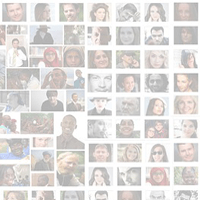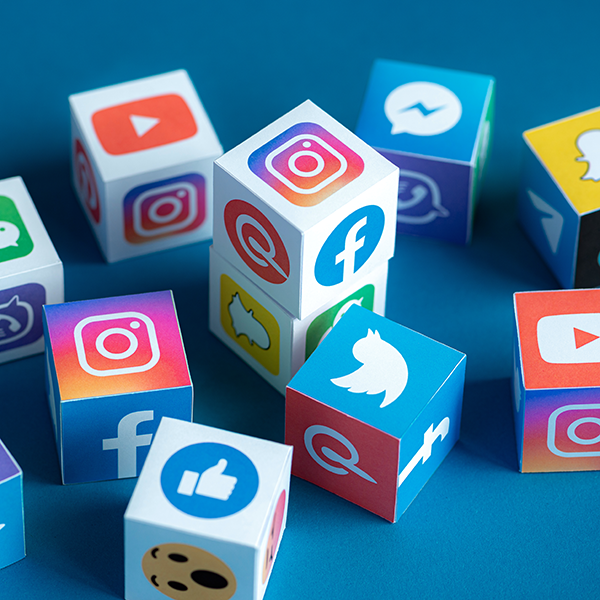Ask Anything About: Facebook

It can be difficult to keep up with every new term or technology available today. Instead of nodding along in agreement, however, it is important to ask questions that will truly help you understand what is being discussed - even if those questions are simplistic in nature.
For this reason, Website Magazine launched its "Ask Anything About" series (inspired by Reddit's popular Ask Me Anything threads) to pair some basic question about a topic with an expert who could answer them in greater detail.
Our expert for "Ask Anything About: Facebook" is Aaron Goldman, CMO of 4C Insights, a data science and marketing technology company. Let's get started!

What are some key marketing challenges and opportunities for marketers using Facebook?
 Aaron Goldman, CMO of 4C Insights: The biggest challenge for marketers on Facebook is capturing attention in a crowded feed. You need truly thumb-stopping content to get people to spend a few precious moments with your brand, but good content alone won't do the trick. The opportunity, nay - imperative for marketers is to find the right combination of targeting and timing. Facebook offers so many ways to precisely choose your target audiences (just ask the Russians!) that it's a sin to rely solely on demographics. Beyond the obvious connections like interests and location, data science from companies like 4C can help you find some unexpected affinities for your brand that will reach the people most likely to engage. As for timing, it's all about using real-time, real-world triggers like weather (show this ad anytime the local temperature drops below 32 degrees) or sports (show this ad anytime the home team scores a goal) or TV (show this ad anytime a commercial comes on for my brand or for a competitor).
Aaron Goldman, CMO of 4C Insights: The biggest challenge for marketers on Facebook is capturing attention in a crowded feed. You need truly thumb-stopping content to get people to spend a few precious moments with your brand, but good content alone won't do the trick. The opportunity, nay - imperative for marketers is to find the right combination of targeting and timing. Facebook offers so many ways to precisely choose your target audiences (just ask the Russians!) that it's a sin to rely solely on demographics. Beyond the obvious connections like interests and location, data science from companies like 4C can help you find some unexpected affinities for your brand that will reach the people most likely to engage. As for timing, it's all about using real-time, real-world triggers like weather (show this ad anytime the local temperature drops below 32 degrees) or sports (show this ad anytime the home team scores a goal) or TV (show this ad anytime a commercial comes on for my brand or for a competitor).
How do marketers need to adjust their strategy for Facebook based on the current state of social media?
Goldman: First of all, any Facebook strategy also has to include Instagram. By combining your placements into a single campaign, you can cast a much wider net and retain the precision of a sturgeon ­- sorry for the fishy pun! Instagram has done a great job keeping its core audience engaged by continually one-upping Snapchat. IG Stories are a great way to reach your audience (using FB targeting) and get more mileage out of vertical video assets created for Snap.
What was most interesting to you about Facebook's recent earnings report?
Goldman: What stuck out to me was that Facebook said it now has more than 6 million advertisers. Back in 2010 I wrote a book about Google and was astounded by the 3 million advertisers it had. At the time, Facebook had less than 500,000. Google truly leveled the playing field among advertisers by allowing anyone to bid on a keyword and get the top spot.
Now here we are eight years later and Facebook hasn't quite caught up to Google but the two have emerged as a "duopoly" that takes somewhere between 60 and 70 percent of all U.S. advertising spend and some 90 percent of all incremental budgets. Sure, it's great for those two companies, but it's also great for the tens of millions of advertisers that have the opportunity to reach their audiences at the most relevant moments. Before Google and Facebook (and before the Internet for that matter) there was simply no way for startups to compete.
Will Facebook be abandoned for a new network anytime soon or ever?
Goldman: No. Facebook (and Instagram and WhatsApp and whatever it buys next) will retain its core audience. The question is if it will acquire new audiences. Snap has taken a hold on the under-18 crowd and that will be a tough habit to break as those kids get older. The good news for Facebook is it has a tight grip on the folks with the most buying discretionary income. That said, brand preference is formed at an early age so it's key to get to the next generation as early as possible. The jury's still out on who will win over the post-millennials. My guess is it won't be any of the current players.
What exactly is 'pay to play,' and why are people associating that phrase with Facebook?
Goldman: Pay to play refers to the fact that you have to spend money (pay) for the opportunity to show up (play) in the News Feed. There once was a time when organic posts could help you reach your current and prospective customers, but those days are gone. Some reports claim that organic reach is down to low single digit percentages. Today, the only way to make sure people who have liked your page or might be interested in your content actually see it is by buying ads. Fortunately, advertising on Facebook is very easy and the targeting is unparalleled so it can be a very worthwhile endeavor for any business or organization.
Does Facebook advertising perform the worst, the same or better than other channels?
Goldman: Facebook ads perform better than most other channels ­- especially when combined with Instagram. Whether your goal is to generate brand awareness or direct response activity, Facebook delivers the scale and precision needed to succeed. We've had brand advertisers use Facebook video ads to drive more efficient reach and frequency than television. We've had mobile marketers generate more cost effective app installs through Facebook than any other platform. We've had ecommerce retailers net higher direct sales and ROI on Facebook than Google. To be sure, Facebook is not always the best for every advertiser and every campaign but it's usually near the top of the heap. Of course, to get the most bang for your buck you have to use all the tools available for creating, targeting, bidding, syncing, and measuring your ads on Facebook. There are automated platforms like 4C that can arm you with artificial intelligence and machine learning to do this not only across Facebook but Instagram, LinkedIn, Pinterest, Snapchat, Twitter and even NBCUniversal.
Can you share an example of a company using Facebook particularly well to engage their audiences?
Goldman: Nice'n Easy by Clairol has done a great job leveraging Facebook to deliver effective messaging at key moments. The brand's agency, Performics, used 4C to target video ads to women ages 30+ immediately after a competitive hair color product ran TV commercials. By capturing attention on the second screen when people were most likely to engage, Nice'n Easy drove 40 percent more brand video views than with standard advertising.
What question would you have asked?
Goldman:
- Q) Is Fake News a real concern?
- A) Yes for Facebook. No for advertisers.

Subscribe to Our Newsletter!
Latest in Social Media










